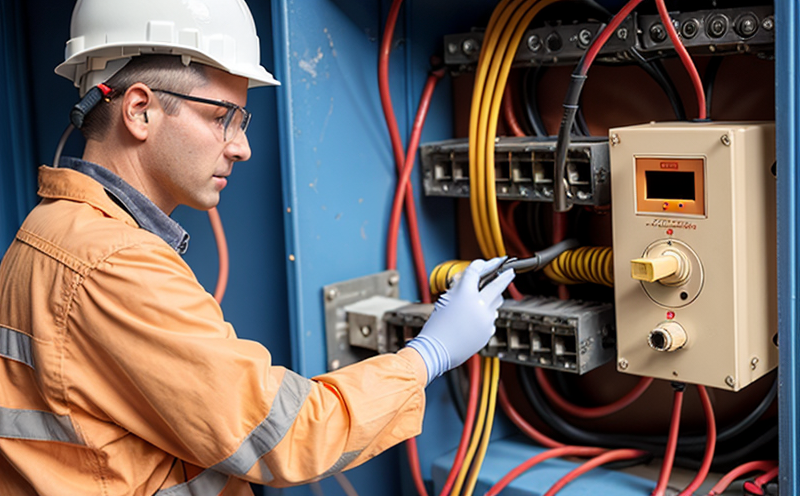IEC 61010 Electrical Safety Testing for Laboratory Equipment
The IEC (International Electrotechnical Commission) is a leading organization that sets standards for electrical safety, and its publication IEC 61010-1 specifically addresses the essential requirements of safety for electrical equipment used in laboratories. This service provides comprehensive testing to ensure compliance with these stringent safety standards.
The primary purpose of this IEC standard is to evaluate laboratory equipment for potential hazards that could arise during use, storage, or transportation. Electrical safety is a critical concern in any environment where electricity is involved, but particularly so in the laboratory setting, where personnel and high-value instruments are at risk. The testing covers a wide range of scenarios, from ensuring the equipment can withstand accidental shocks to verifying the effectiveness of insulation.
The IEC 61010-1 standard defines the essential requirements for safety which include specific test procedures that must be followed during evaluation. These tests are designed to identify potential electrical hazards and ensure that the equipment is safe under normal operating conditions as well as in cases of fault.
During testing, we follow a structured approach to ensure thoroughness:
- Initial inspection of the equipment’s design and construction
- Detailed examination of the materials used for insulation
- Measurement of electrical parameters such as voltage, current, resistance, and capacitance
- Evaluation of the safety features present in the equipment, including overcurrent protection, grounding, and isolation
- Performance tests to simulate real-world usage conditions
- Inspection for compliance with other relevant standards such as IEC 61010-2, which provides supplementary requirements on electrical insulation.
The testing process is designed to be rigorous and comprehensive. It is not merely about identifying immediate hazards but also ensuring that the equipment can withstand potential faults without compromising safety. This includes evaluating the durability of insulation under various stress conditions and assessing the effectiveness of protection mechanisms in preventing electrical accidents.
Our lab uses state-of-the-art instrumentation to conduct these tests, ensuring precision and accuracy in every measurement. The results are meticulously documented and reported, providing a clear picture of the equipment’s safety profile. Compliance with IEC 61010-1 is essential for any laboratory that values the safety of its personnel and the reliability of its instruments.
The importance of this standard cannot be overstated, especially in sectors where electrical equipment plays a critical role. By adhering to these standards, laboratories can minimize risks associated with electrical hazards, ensuring not only compliance but also enhanced safety for all users.
Applied Standards
| Standard Code | Description |
|---|---|
| IEC 61010-1:2001 | Essential requirements for safety of electrical equipment used in measurement, control and laboratory techniques. |
| IEC 61010-2-1:2001 | Supplementary requirements on insulation for instruments used in measurement, control and laboratory techniques. |
The combination of these standards provides a robust framework that ensures the safety of electrical equipment in laboratories. Compliance with these standards is mandatory for any organization involved in research, development, or production processes where electrical hazards are present.
Industry Applications
- Pharmaceutical manufacturing facilities
- Biotechnology R&D labs
- Electronics design and manufacturing plants
- Academic research institutions
- Forensic science laboratories
The rigorous testing procedure under IEC 61010-1 ensures that the electrical safety of equipment used in these industries is maintained at a high standard. This not only protects personnel but also maintains the integrity and reliability of the research conducted.
For instance, in pharmaceutical manufacturing, the precision of instruments can directly affect product quality. Ensuring that these instruments meet the required safety standards is crucial for maintaining compliance with regulatory bodies like FDA or EU GMP guidelines. Similarly, in electronics design, the use of non-compliant equipment could lead to costly delays and potential accidents.
The testing process also ensures that the equipment can withstand various environmental conditions common in laboratories, such as high humidity or frequent temperature changes. This is particularly important for devices used in biotechnology labs where the integrity of samples depends on the stability of the equipment.
Quality and Reliability Assurance
- Initial conformity assessment to IEC 61010-1 standards
- Periodic re-certification checks to ensure ongoing compliance
- Detailed documentation of test results for audit purposes
- Training and certification of personnel involved in testing
The quality assurance process is designed not only to meet regulatory requirements but also to enhance the reliability of laboratory equipment. Periodic re-certification checks are crucial as they ensure that changes in technology or operational practices do not compromise safety.
Detailed documentation serves multiple purposes, from providing traceability for compliance audits to offering insights into potential areas for improvement. Training and certification of personnel involved in testing ensures that the latest best practices are followed consistently across all tests.
By adhering to these quality and reliability assurance measures, we ensure that our clients receive accurate and reliable test results that can be trusted to meet regulatory requirements and industry standards.





